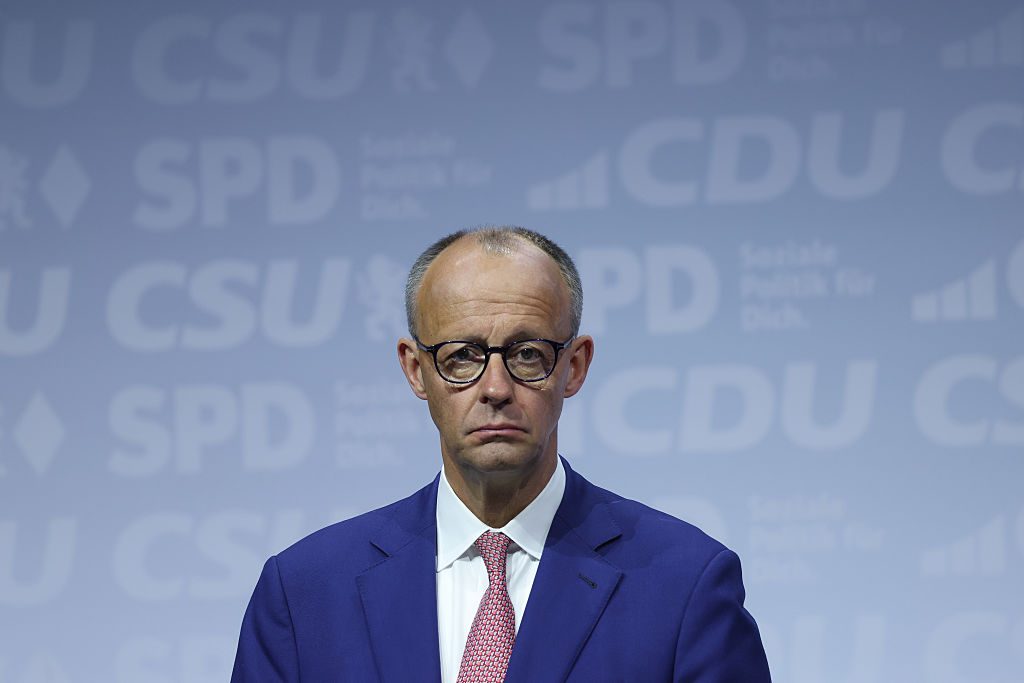“The autumn of reforms has begun,” German Chancellor Friedrich Merz told parliament this week. With the country mired in a structural economic crisis, he promised sweeping change, claiming the moment was about “nothing less than the future of our country”. Yet his rhetoric was short on specifics, and his government’s plans fall far short of fundamental reform. Germans are unlikely to be stirred by Merz’s pep talk.
Most agree with his diagnosis: Germany is in serious economic trouble. A recent survey showed that three-quarters of Germans had “grave” or “very grave” concerns about the economy. But few believe Merz has solutions. Only 22% are satisfied with his government’s work. While he acknowledges the scale of necessary reforms, there’s little sign he’s willing or able to tackle the root problems.
Take welfare spending. Germany spends nearly 28% of its GDP on welfare — more than all comparable countries bar Austria and France. Economic experts warn that this burden is unsustainable. Merz agrees, saying Germany has been “living beyond its means”, but he faces stiff resistance to reform.
Unemployment benefits (Bürgergeld) have become a political flashpoint. Last year, the programme cost nearly €47 billion — up almost 10% in a single year. Strikingly, close to half of that money went to non-German citizens, fusing the debate with immigration.
Now, even voters on the Left lean toward tougher sanctions and stricter migration controls. Yet Merz has struggled to mount an effective response. His conservatives govern in coalition with the centre-left SPD, which fiercely defends the welfare state as it stands. When Merz pressed for sweeping reform, Labour Minister Bärbel Bas (SPD) dismissed the idea as “bullshit.” Bound by his refusal to work with the AfD, Merz is stuck with the SPD — and unwilling to risk blowing up the coalition over welfare reform.
While Merz highlights a 43% drop in asylum applications in early 2025, the number of refugees in Germany rose to 3.5 million last year — about 4% of the country’s population. As there is no clear plan to integrate these newcomers into the workforce or wean them off state support, Merz’s hands are tied.
Pensions are an even bigger fiscal challenge. Demographic shifts mean they’re increasingly state-subsidised, with last year’s bill exceeding €400 billion. Yet reform here is even trickier. Polls show overwhelming support for stricter welfare rules, but over 80% oppose raising the retirement age. When Economy Minister Katherina Reiche suggested Germans “need to work more and longer”, the backlash was swift. SPD general secretary Tim Klüssendorf declared a higher pension age “out of the question”. Merz told Reiche to rein it in.
Reiche also faces another structural problem: energy policy. With few natural resources beyond brown coal, Germany’s nuclear exit has left it heavily reliant on energy imports to fill the gaps left by inconsistent renewables. Currently, the country imports nearly 70% of its energy needs, an expensive and risky dependency that’s driving away investment. Steel giant ArcelorMittal recently abandoned plans for green steel production in Germany, opting instead for nuclear-powered France due to its reliable and affordable electricity.
Though Reiche acknowledges the issue, there is little she can do. Despite growing public support for a return to nuclear energy, the political elite remains adamantly opposed. Infrastructure from Germany’s once-thriving nuclear sector — which used to provide around 30% of electricity — is being dismantled at speed. In Bavaria, preparations to demolish the Gundremmingen plant towers are underway to ensure they can never be reused.
The government remains committed to three immovable goals: zero emissions by 2045, more public investment in renewables, and a total nuclear exit. In short, Germany’s new energy policy is its old one, alienating traditional industries and deterring new investments that can’t depend on stable, affordable energy.
Welfare and energy are just two major crisis points at the heart of German economic malaise. Merz talks of an “autumn of reforms”, but without bold action on these fronts, it’s more likely to be an autumn of cosmetic tweaks. Unless he has a hidden plan, real structural change seems as distant as ever.

